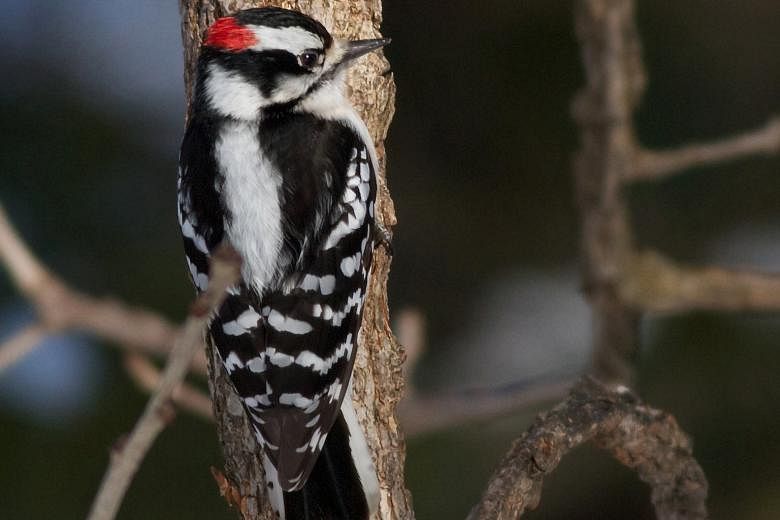WASHINGTON • For a person, slamming your head full force into a tree trunk could be enough to knock you silly.
Woodpeckers do this untold thousands of times during their lives, and these birds have thrived on Earth for some 25 million years.
But research published on Friday shows for the first time that all this pecking seems to carry consequences for the woodpecker's brain. Scientists said an examination found build-ups of a protein called tau in woodpeckers' brains, that in people is associated with brain damage from neurodegenerative diseases and head trauma.
The researchers examined brain tissue from Downy Woodpeckers and Red-winged Blackbirds, a non-pecking bird, from collections at the Field Museum in Chicago and the Harvard Museum of Natural History. The woodpeckers had tau build-up. The blackbirds did not.
The scientists are now trying to determine whether the tau buildup was indicative of brain damage or somehow protective instead.
A woodpecker has several adaptations to mitigate the impact of pecking, involving its beak, skull, tongue and the space between its brain and skull.
The birds face substantial g-force - the effect of acceleration on the body - from pecking for food like insects and tree sap or to attract mates. Pecking causes a force of up to 1,400 gs. A person can get a concussion from 60gs to 100 gs. Tau helps to stabilise brain nerve cells, or neurons.
If a neuron is damaged, a form of tau can build up, sometimes altering brain function.
Boston University School of Medicine neuropathologist Peter Cummings said there are many types of tau and some may be neuroprotective. "If indeed pecking is leading to increased tau accumulation, our study can't tell the difference between tau that might be protective or pathological," he said.
"However, you can hypothesise that because the birds have been in existence for millions of years and are thriving, that trauma-related neurodegenerative disease might not be an issue."
REUTERS

